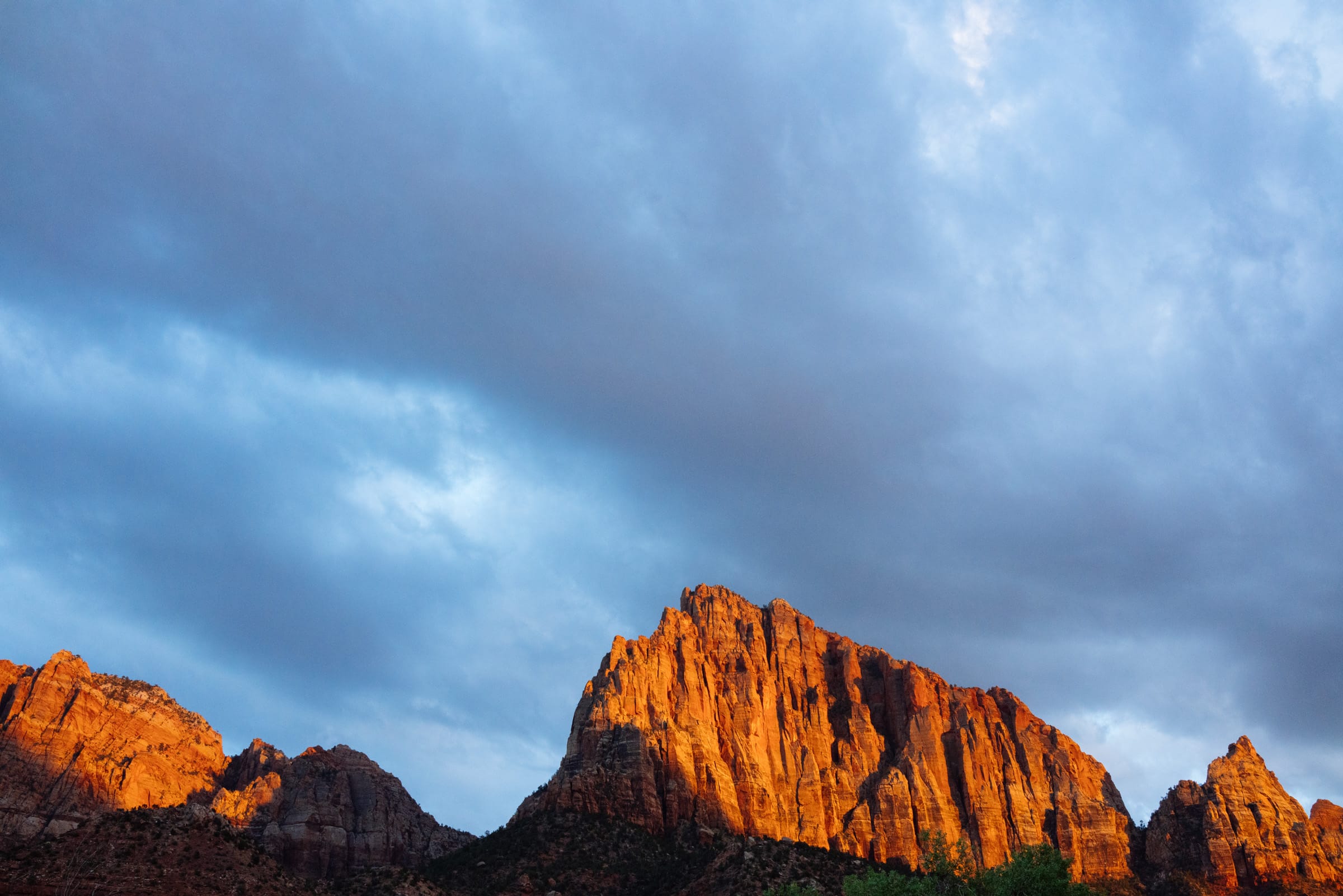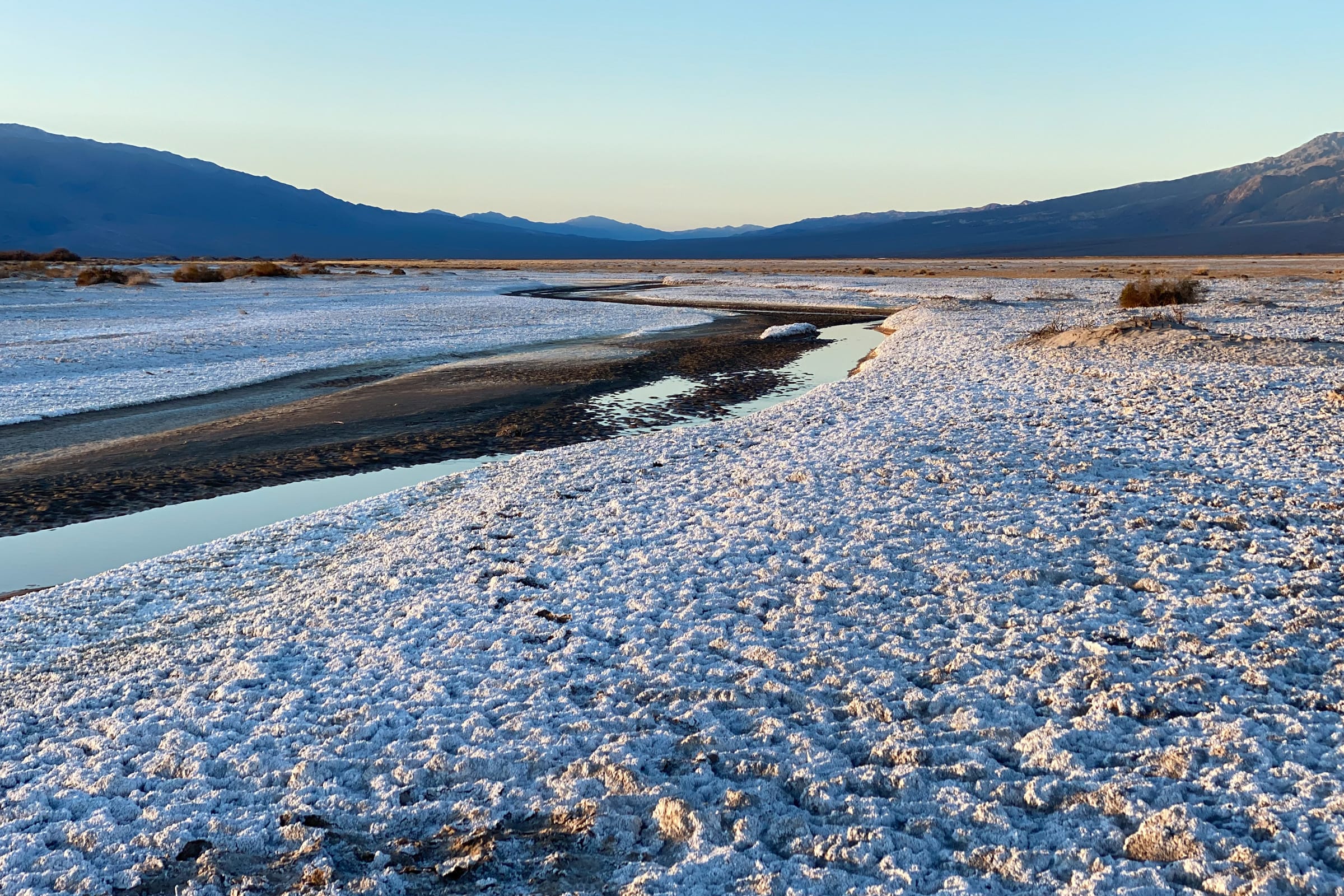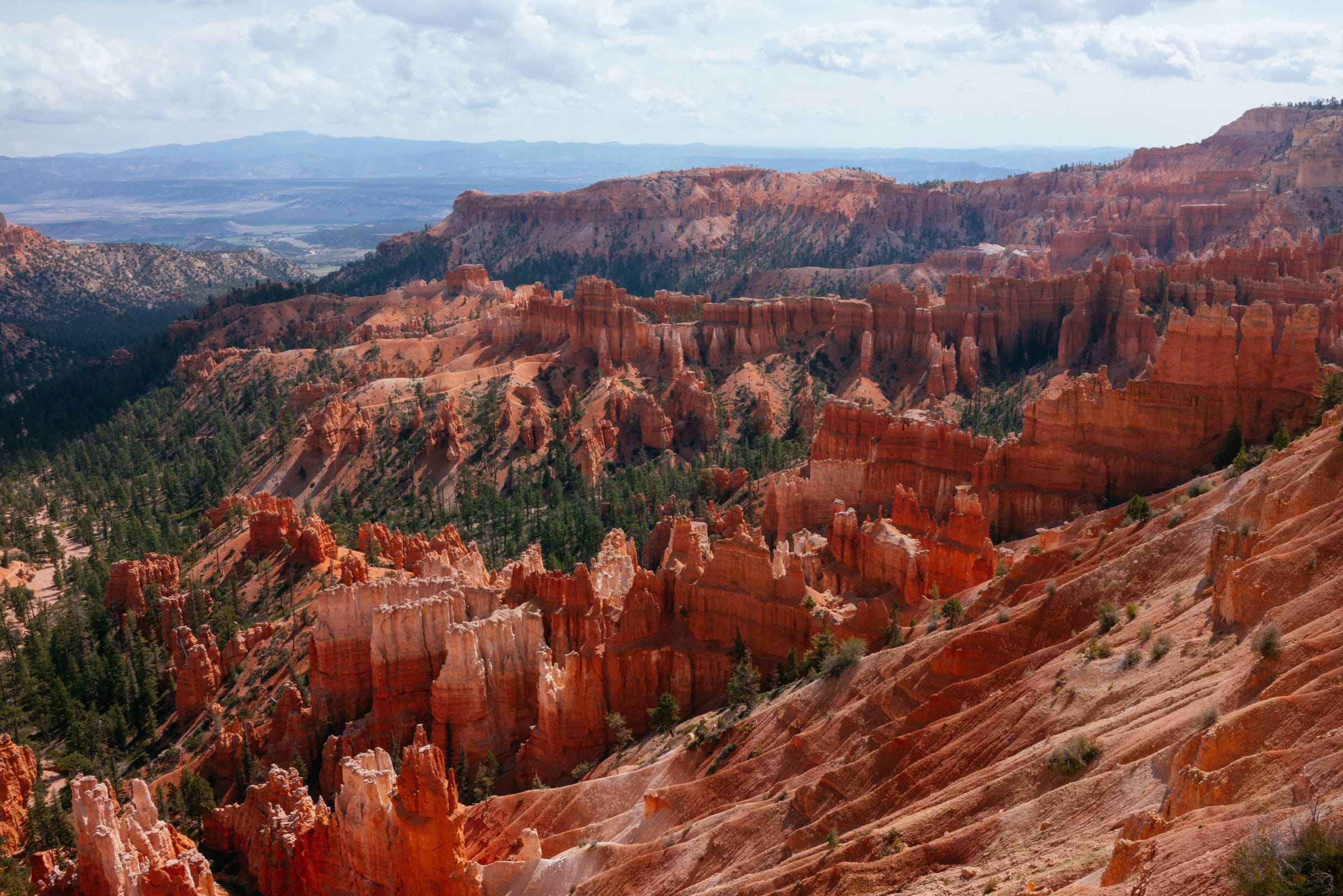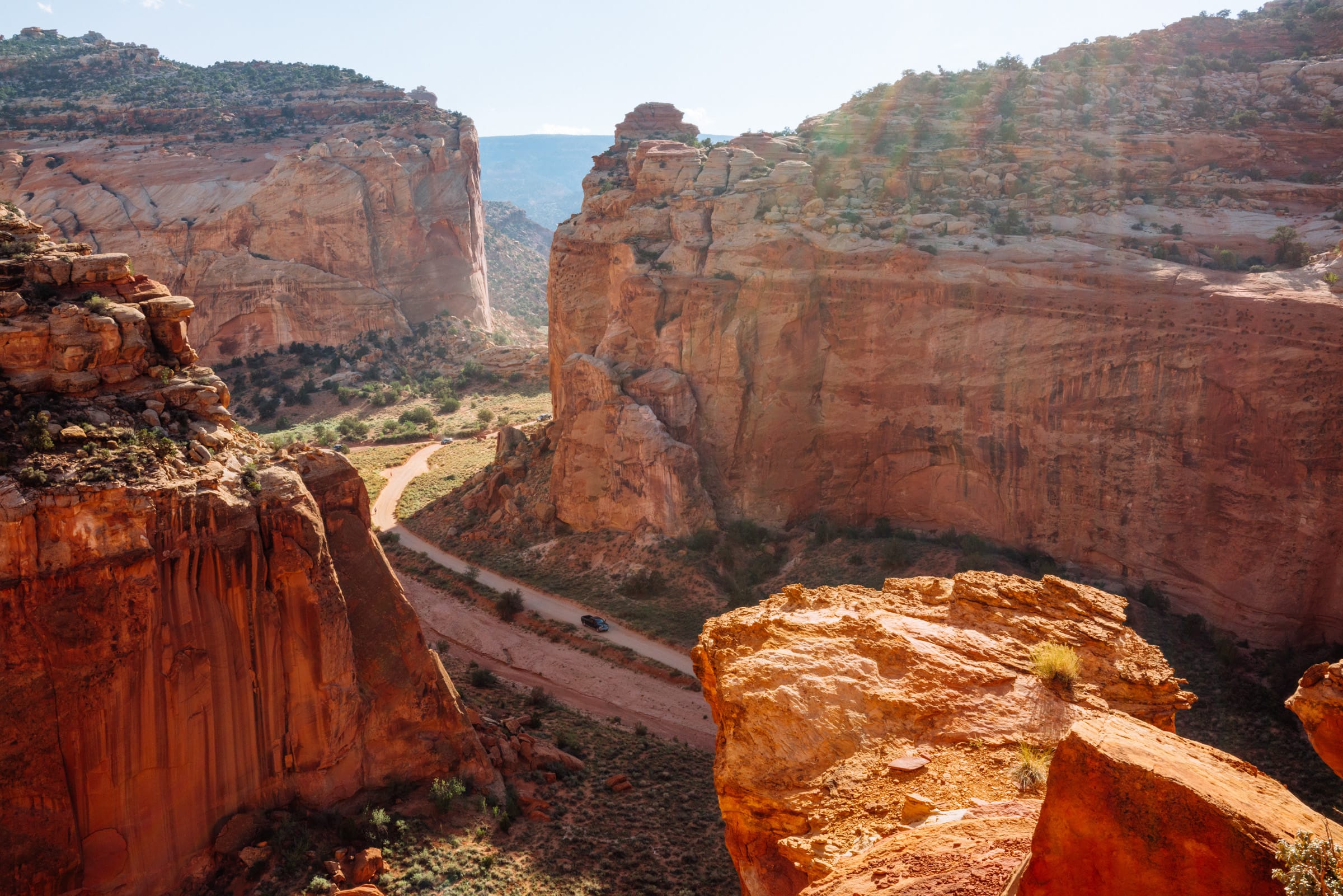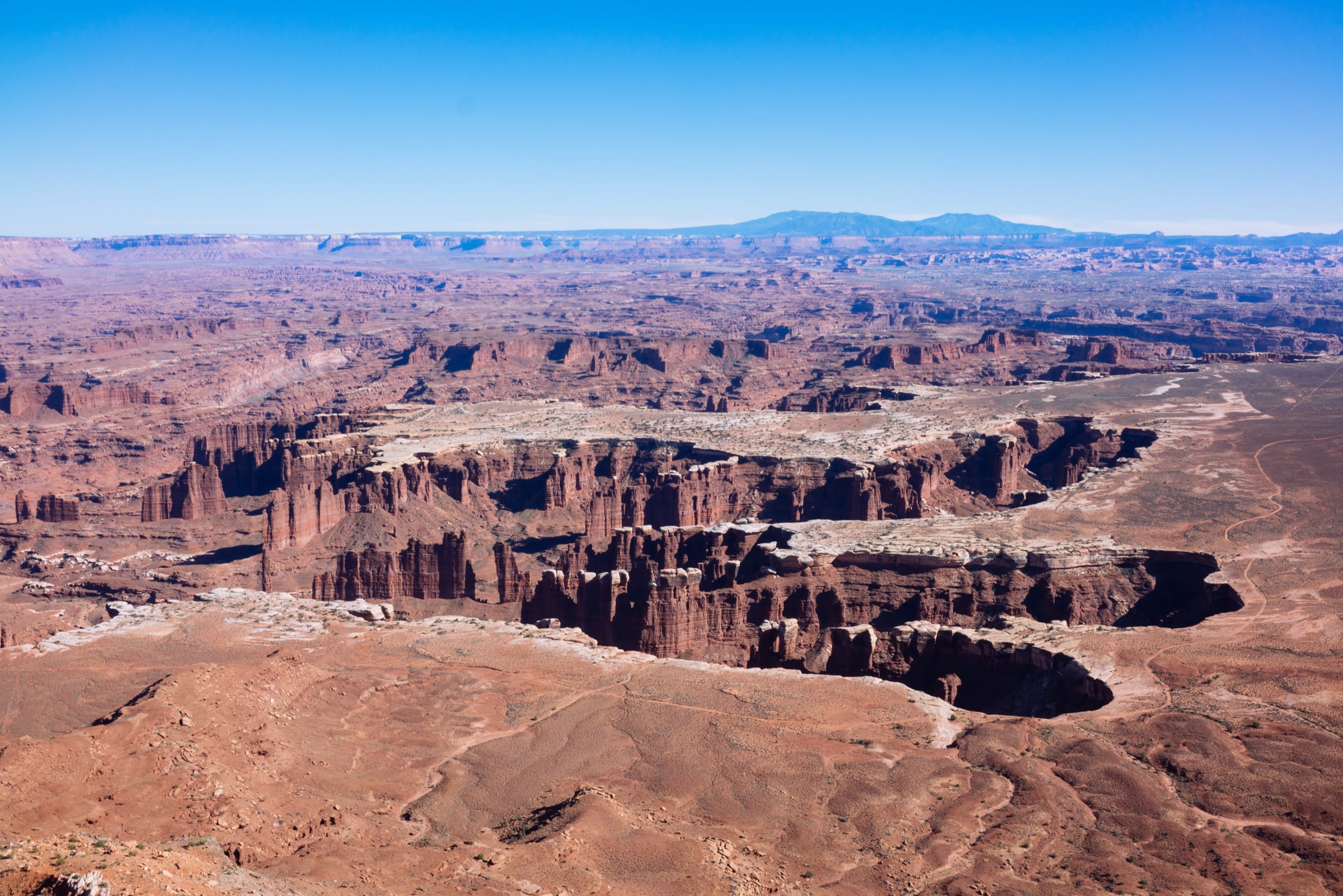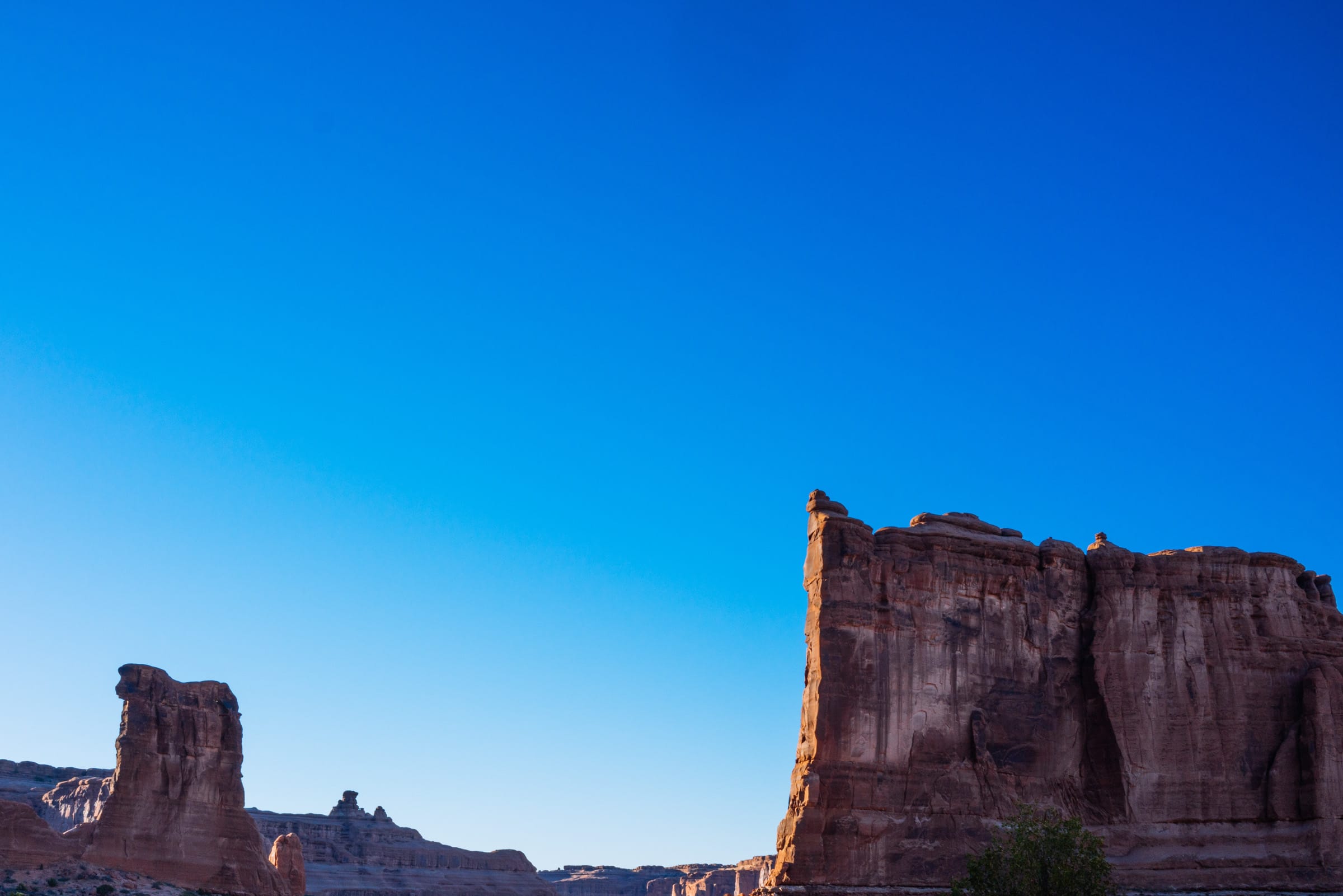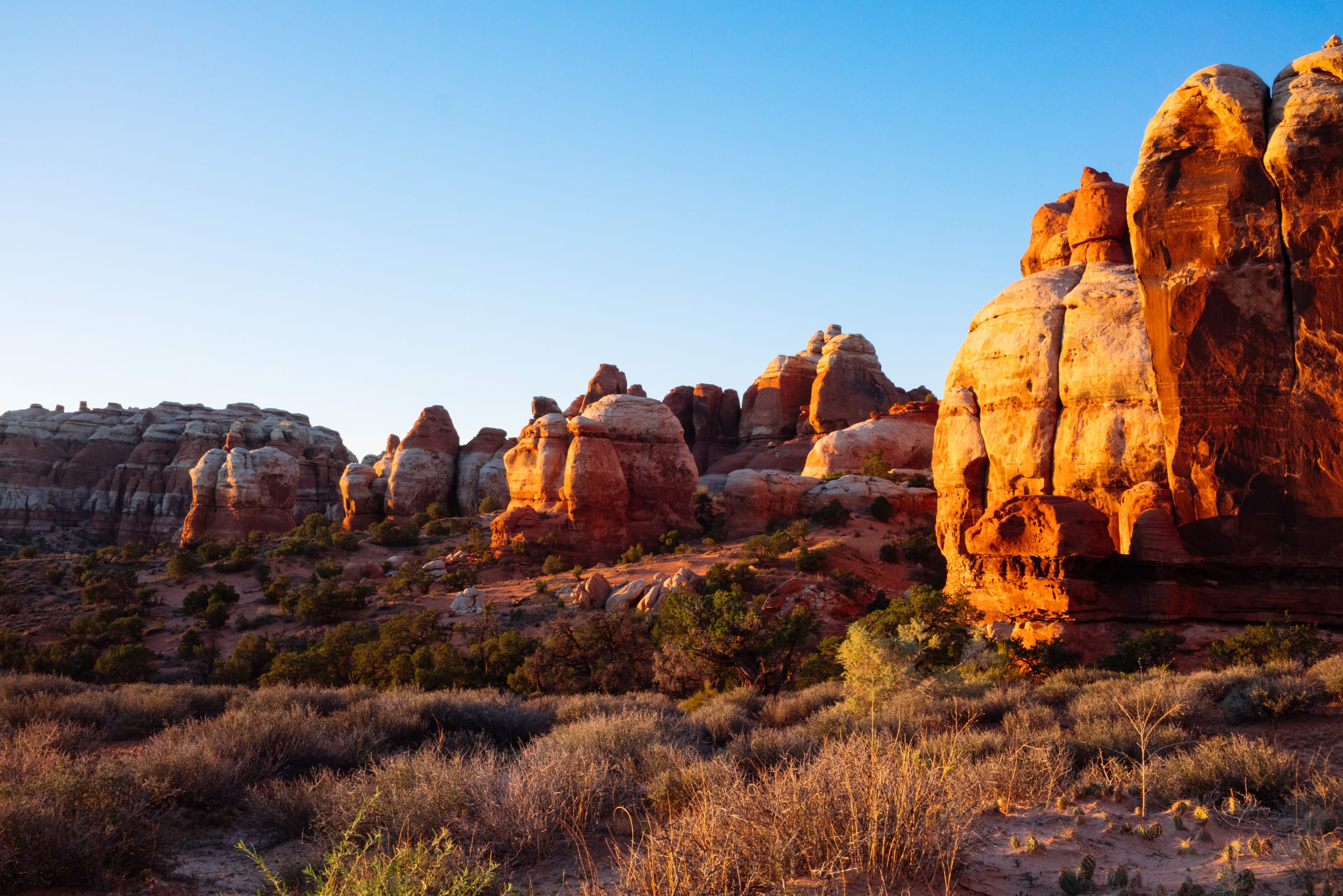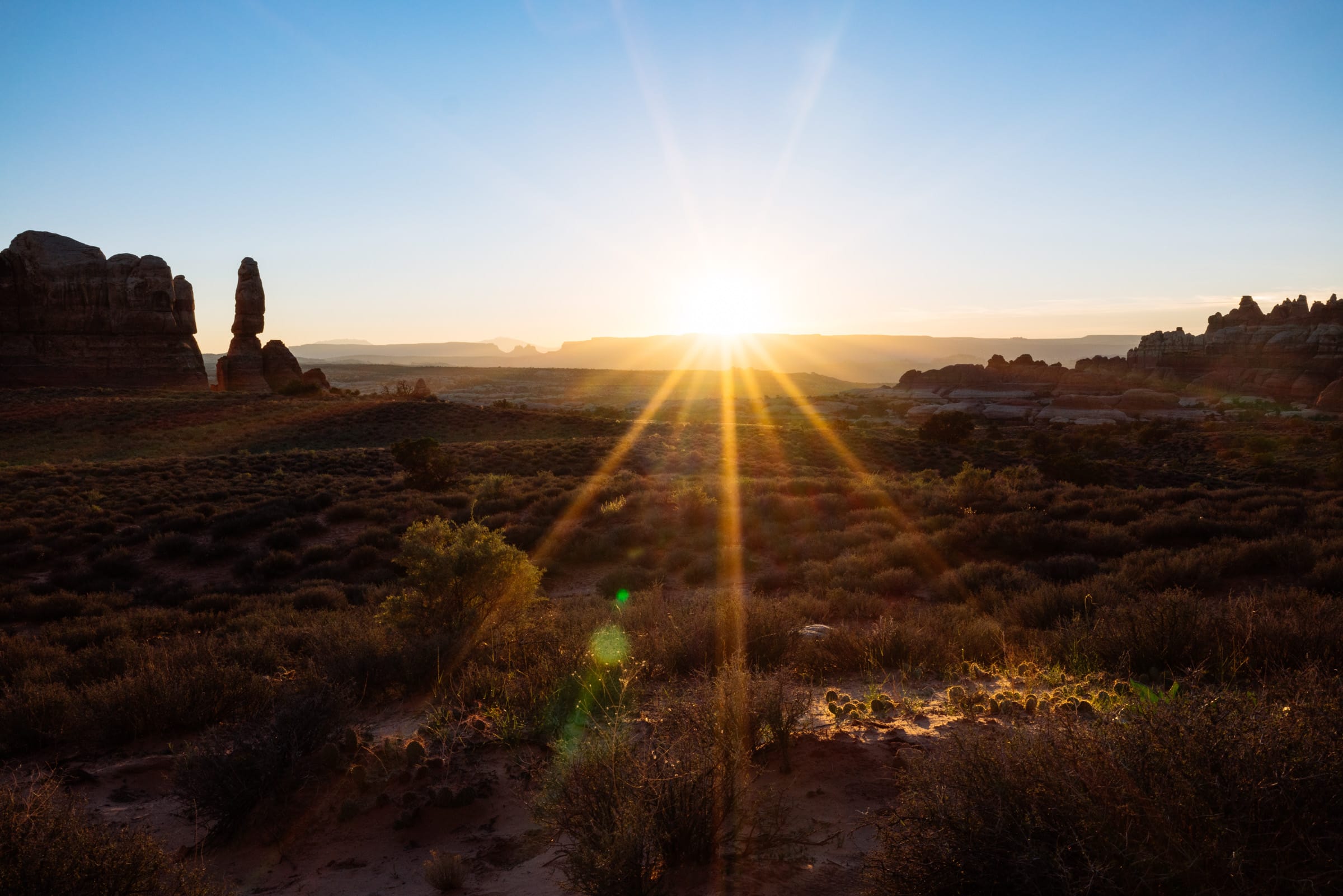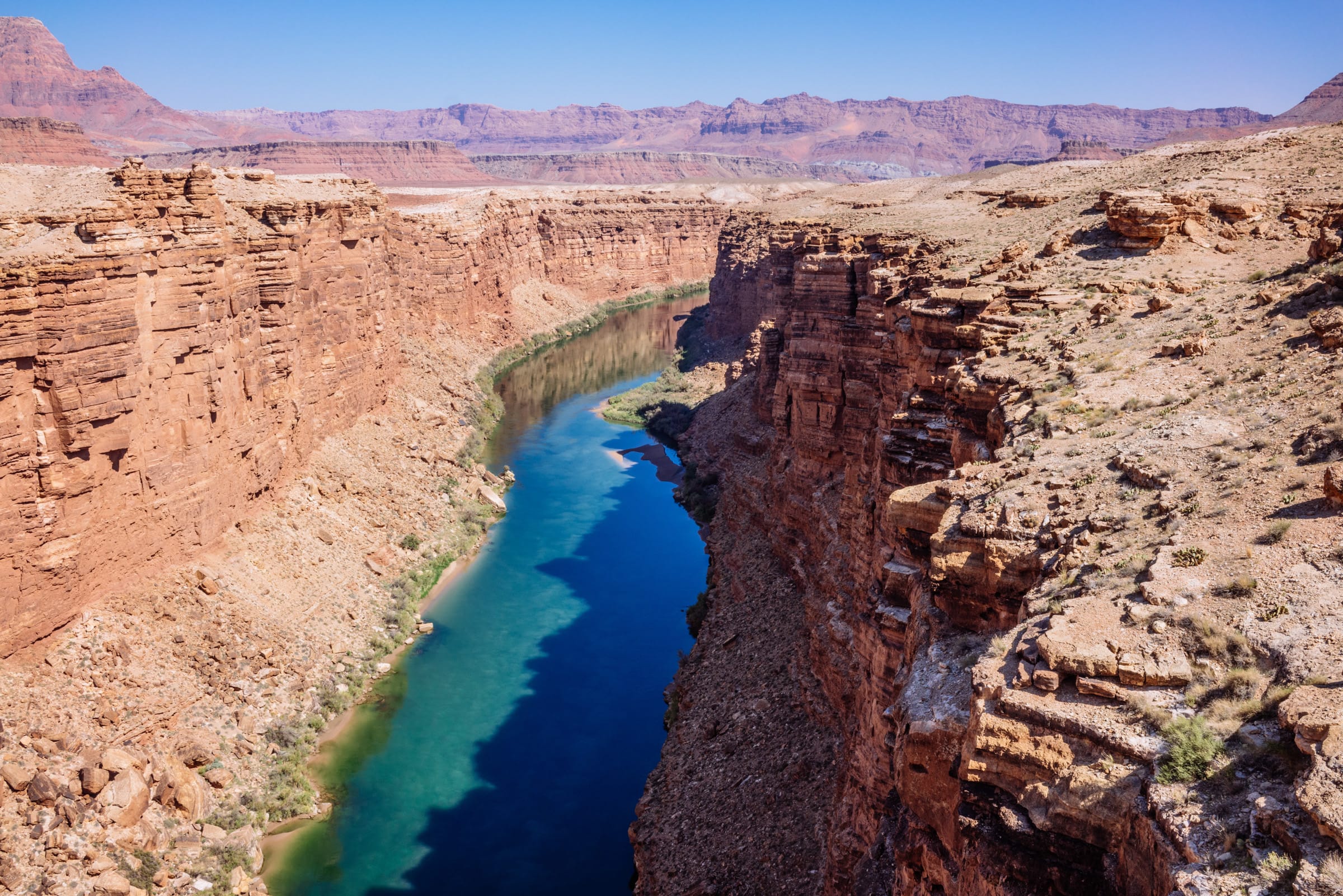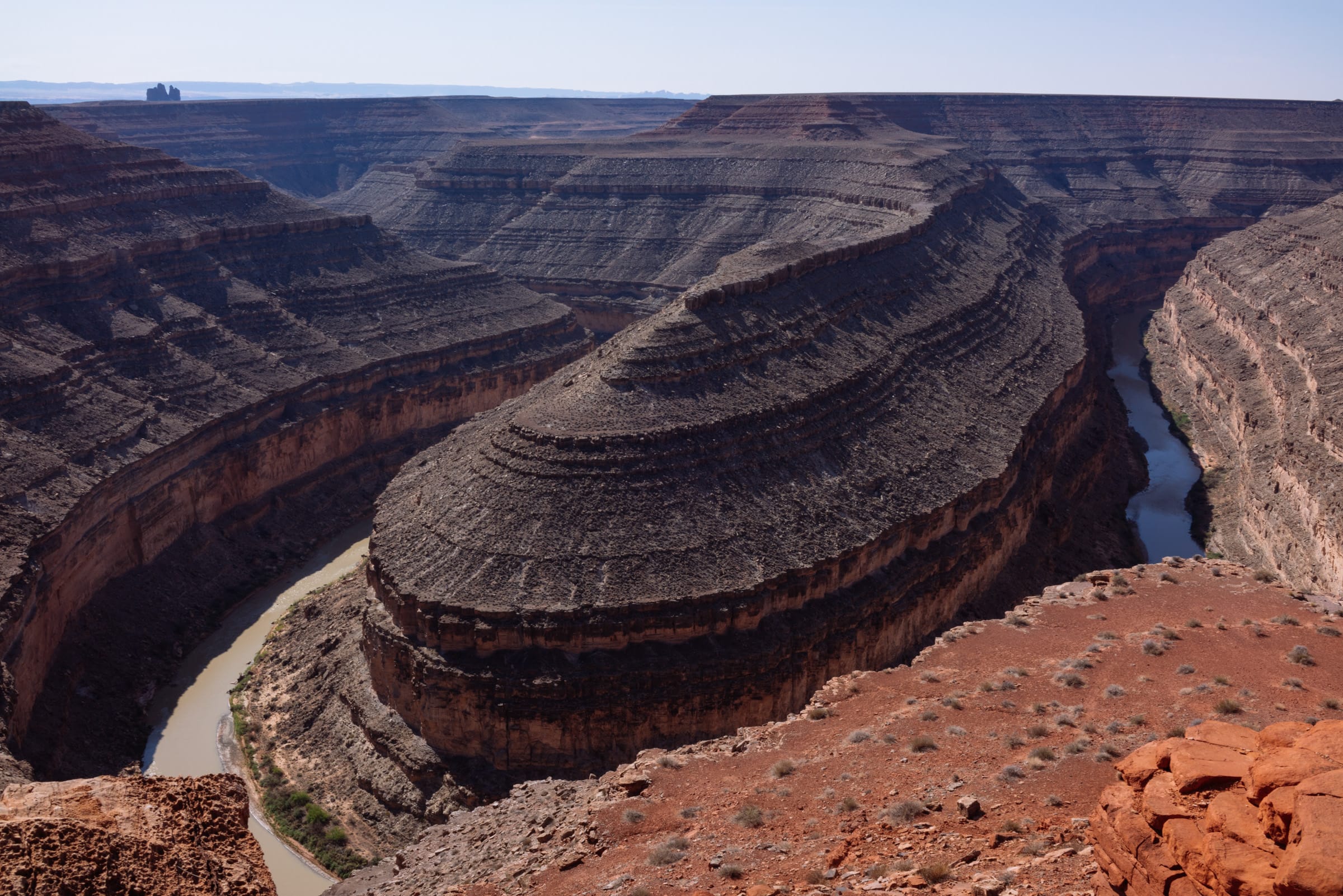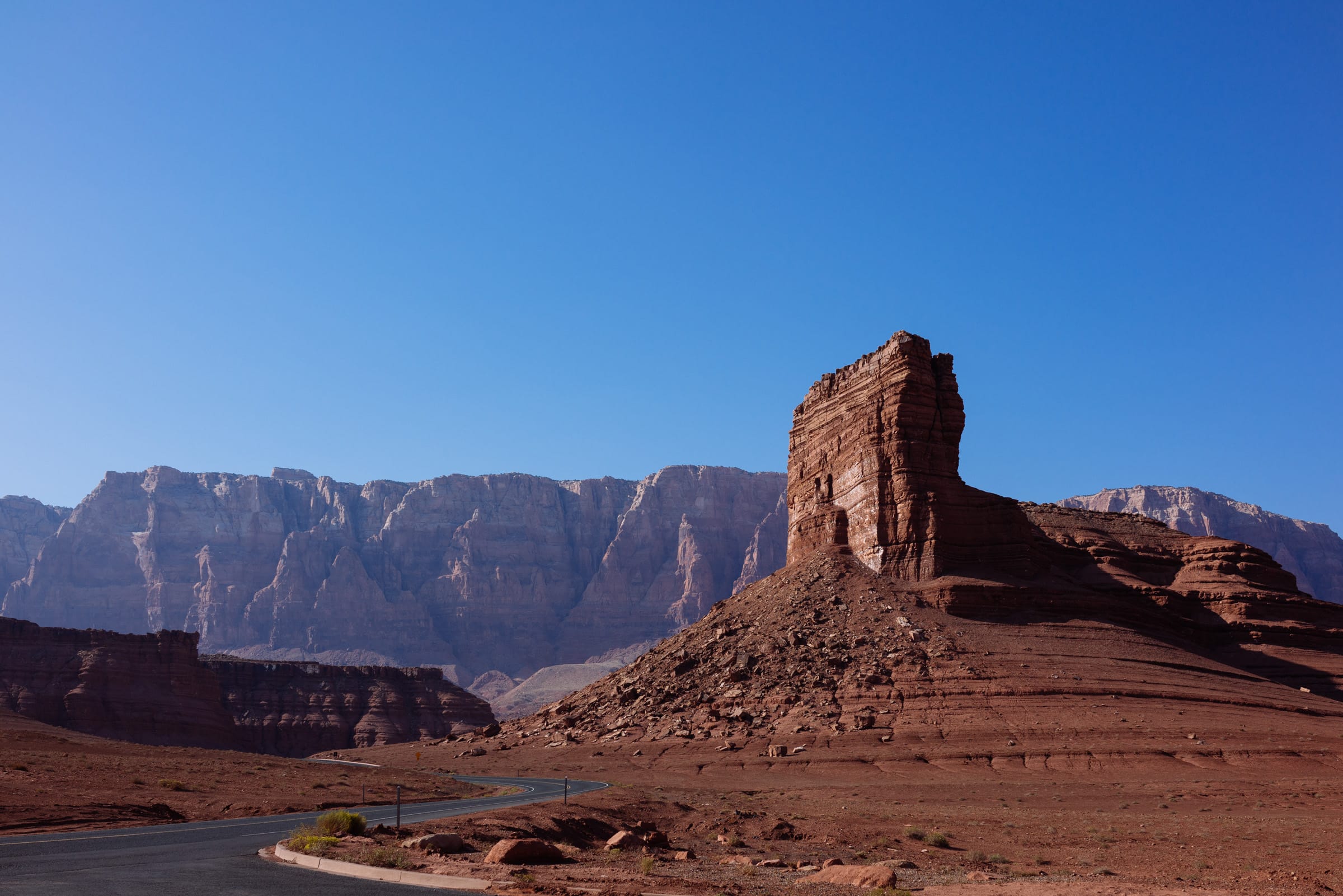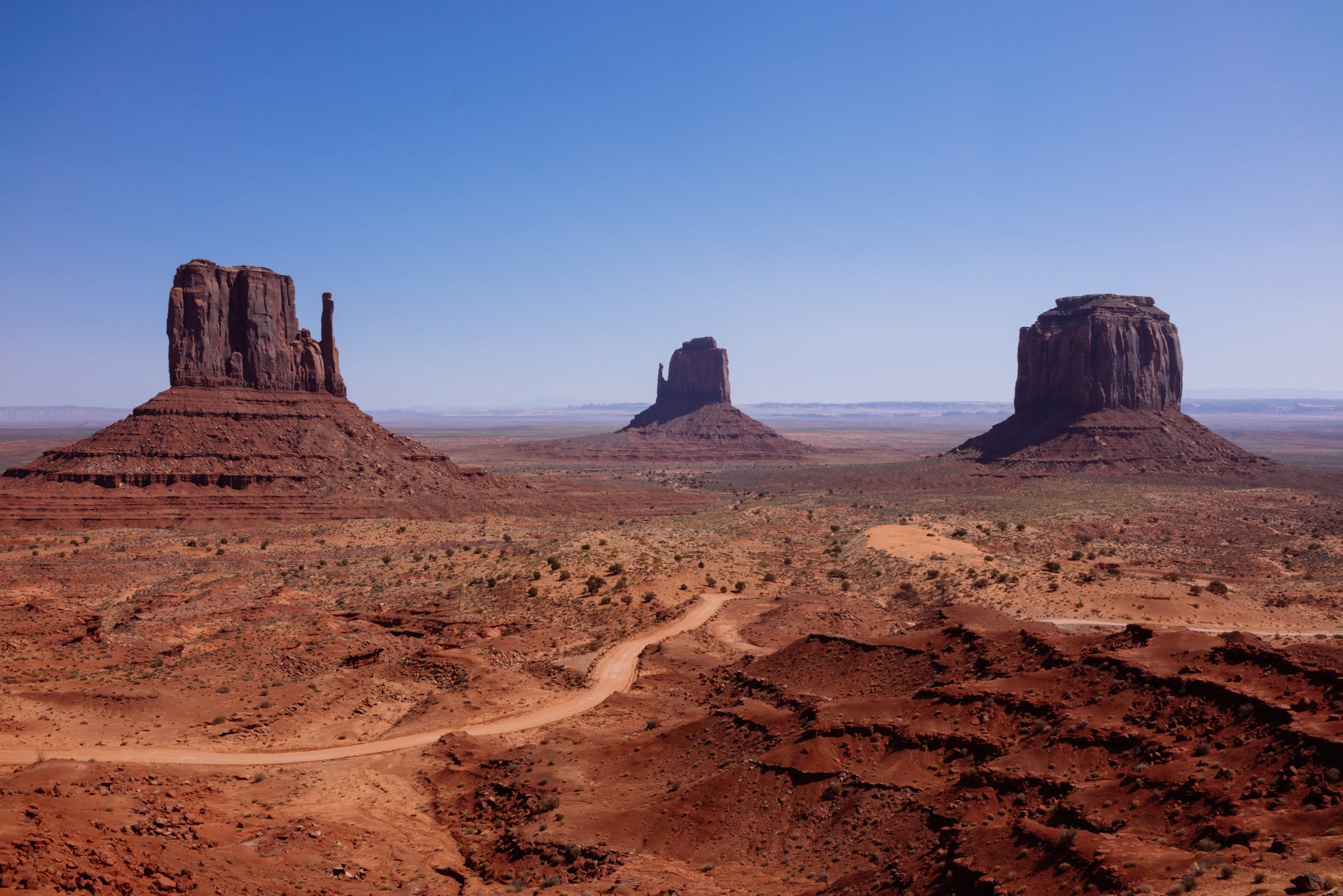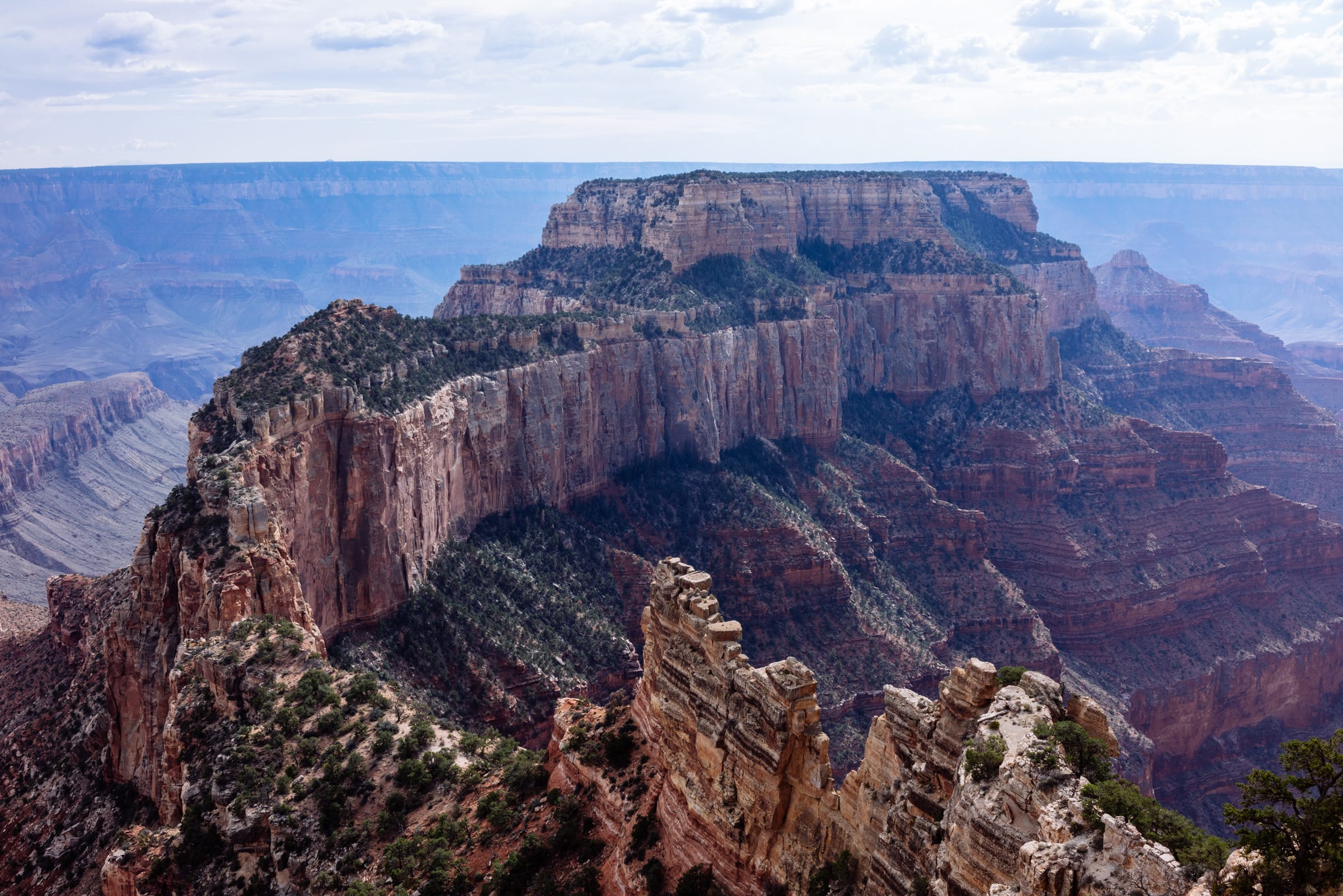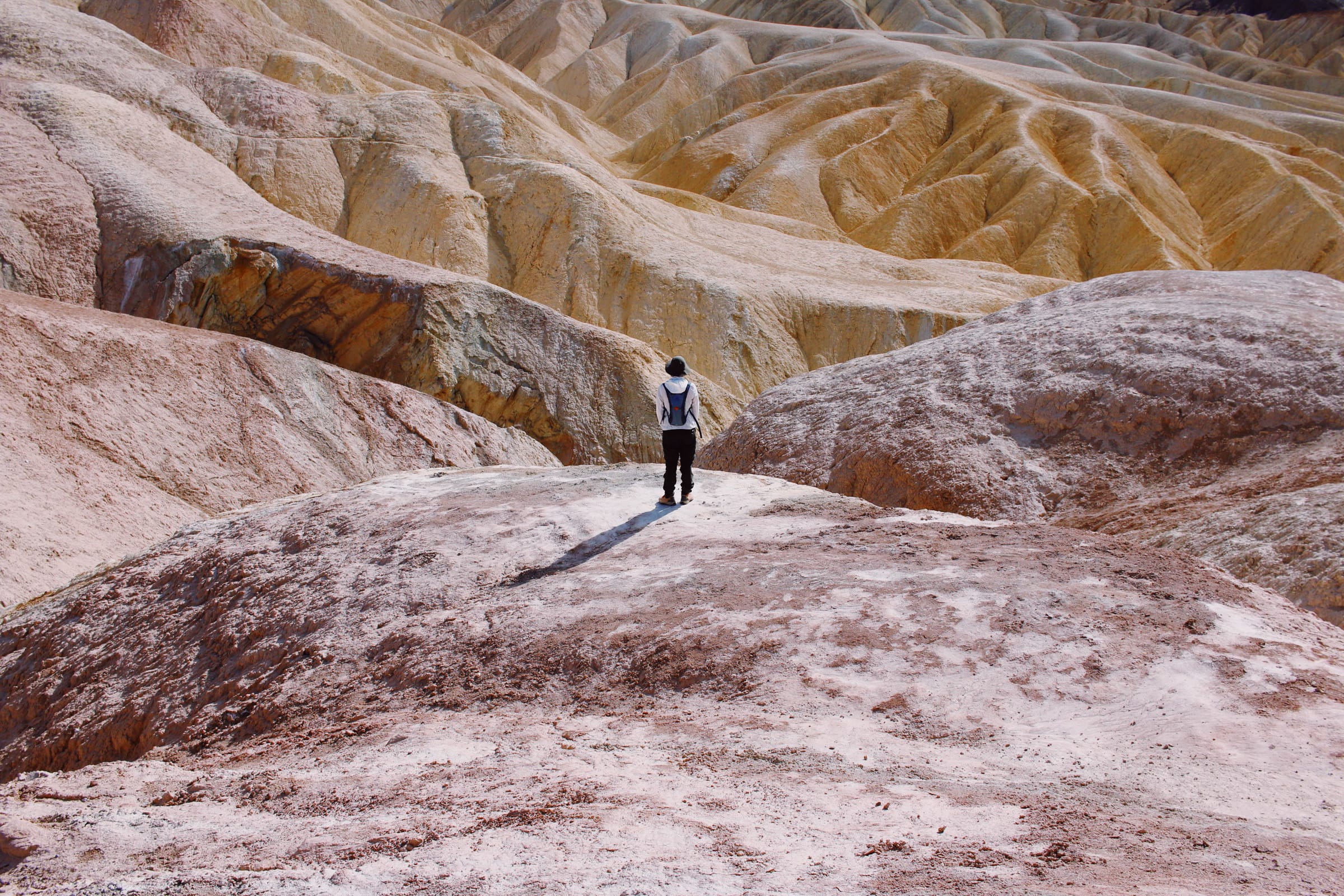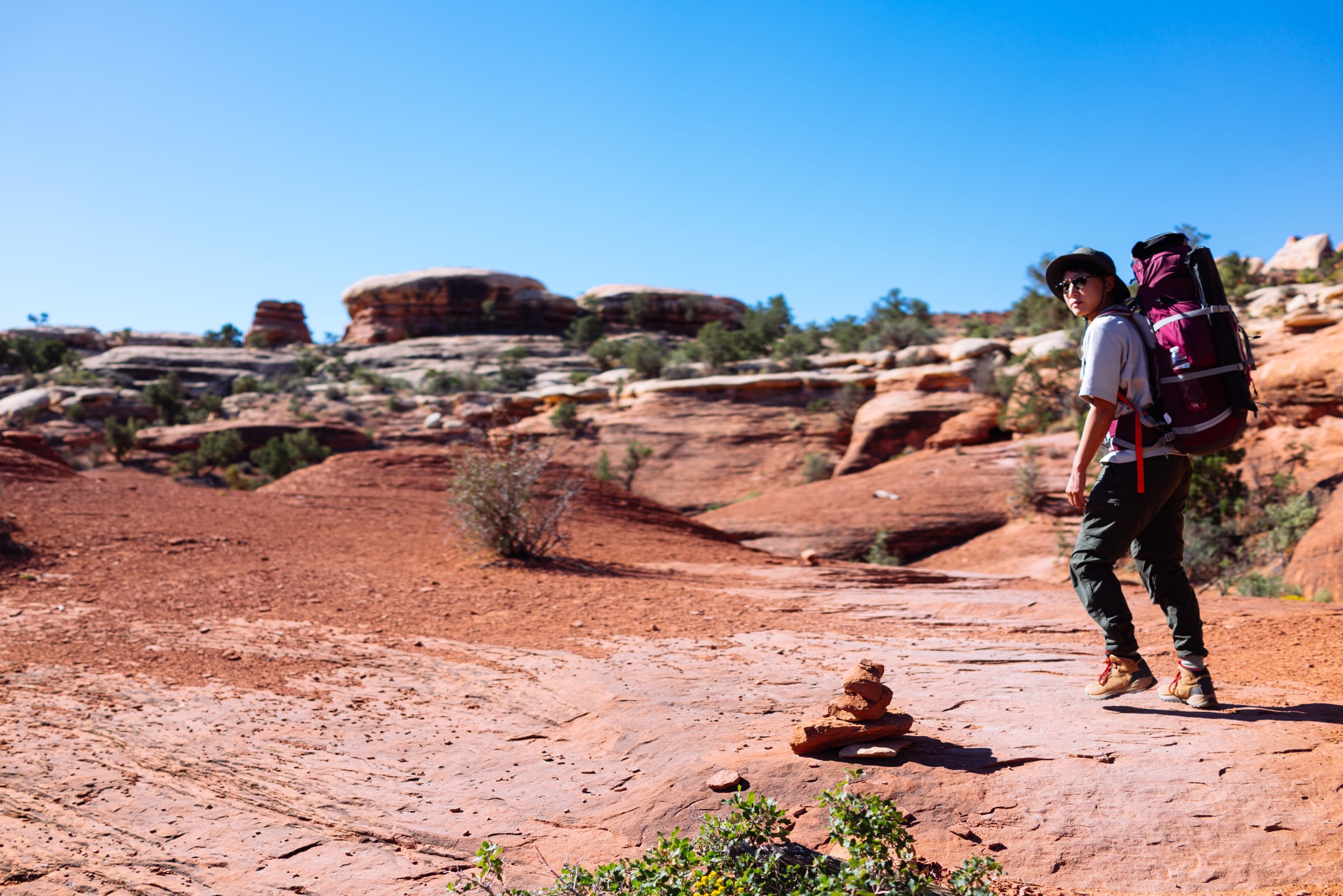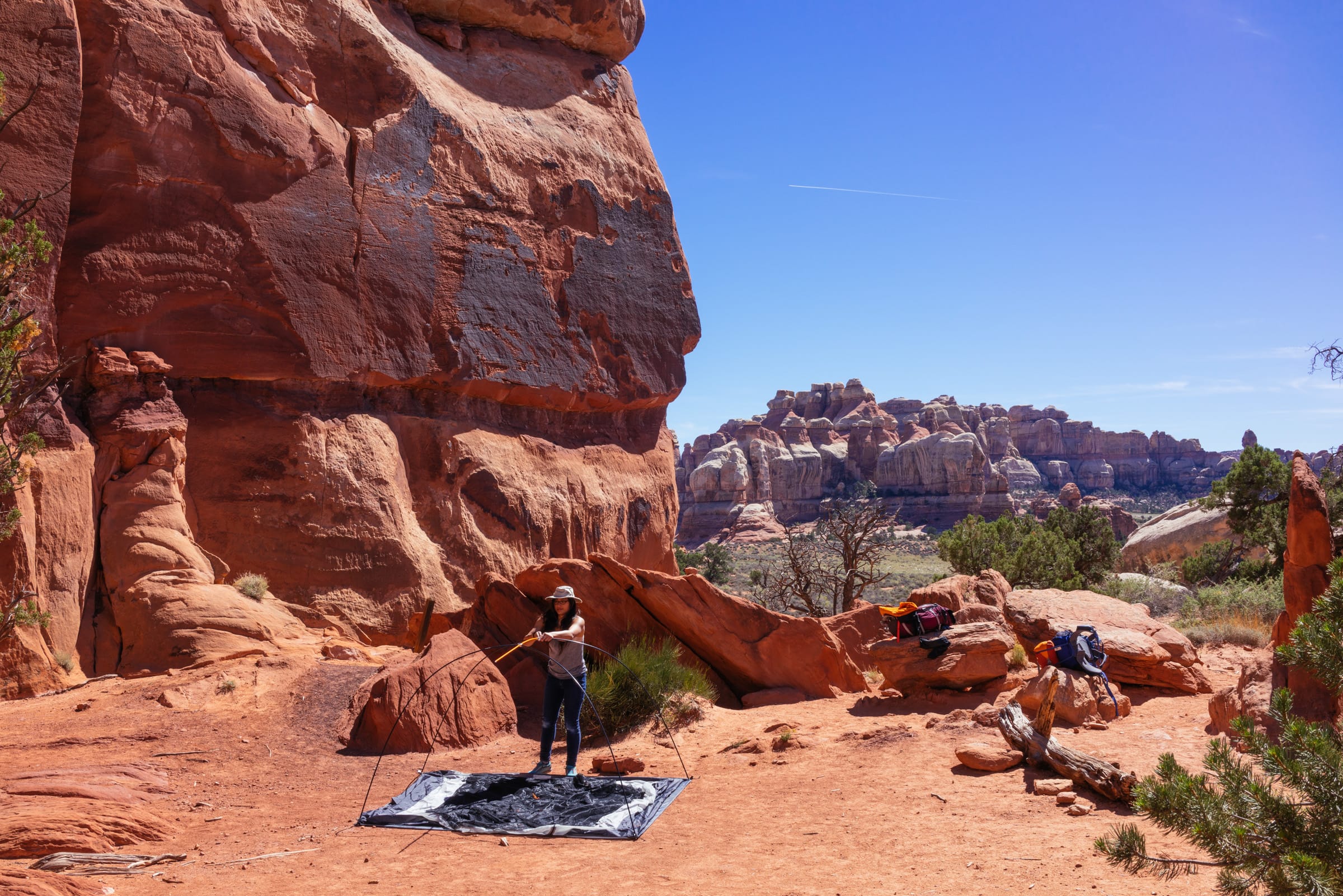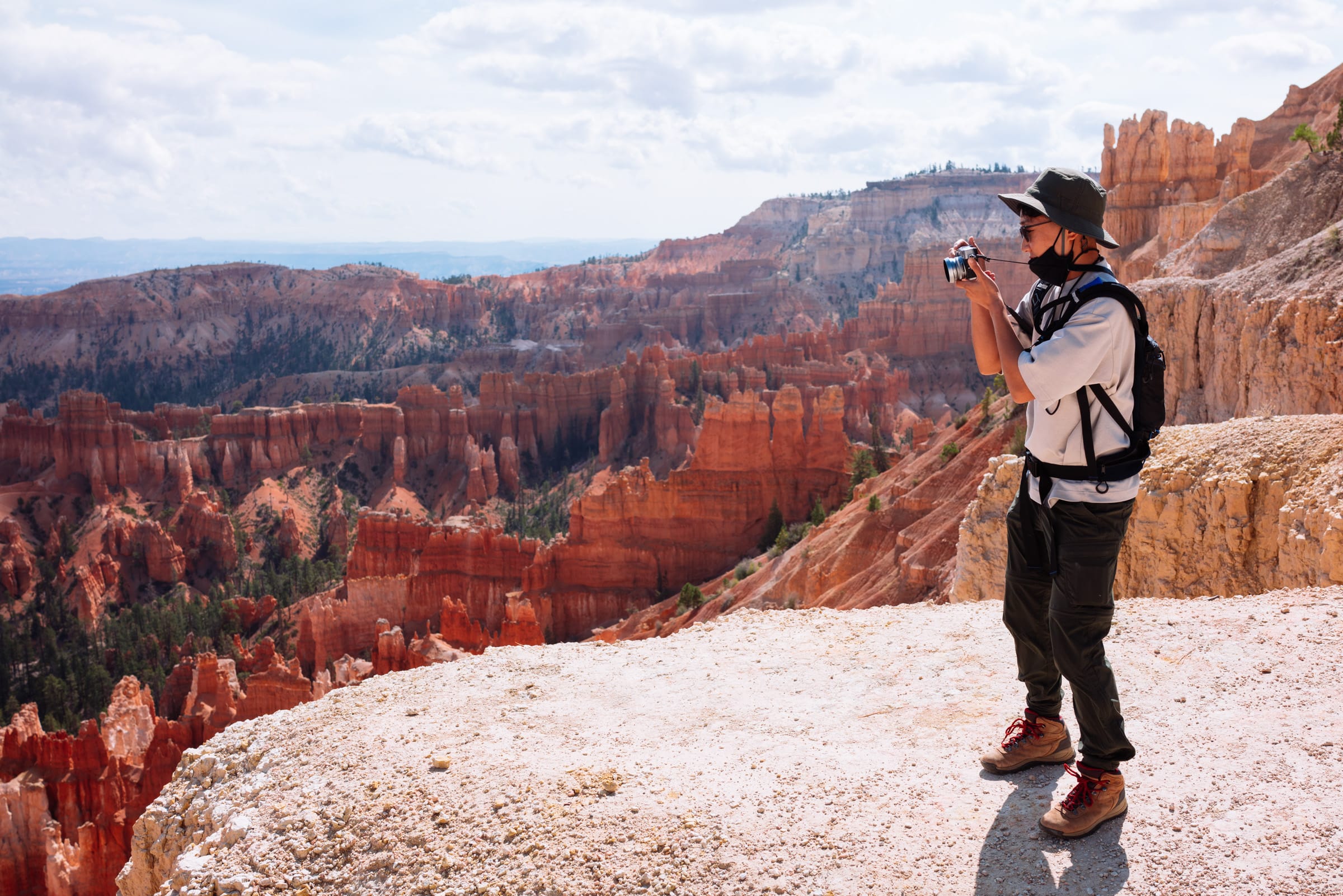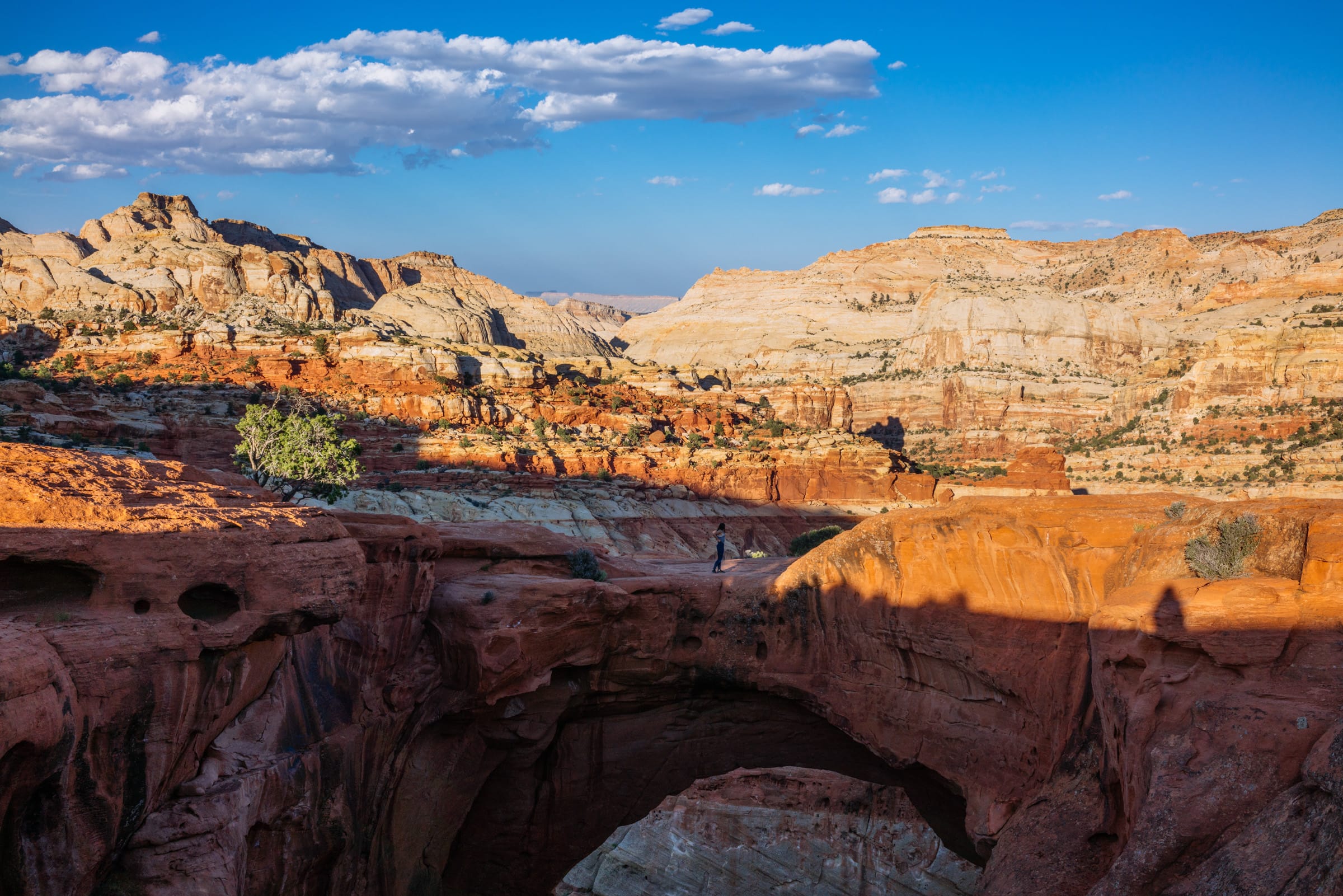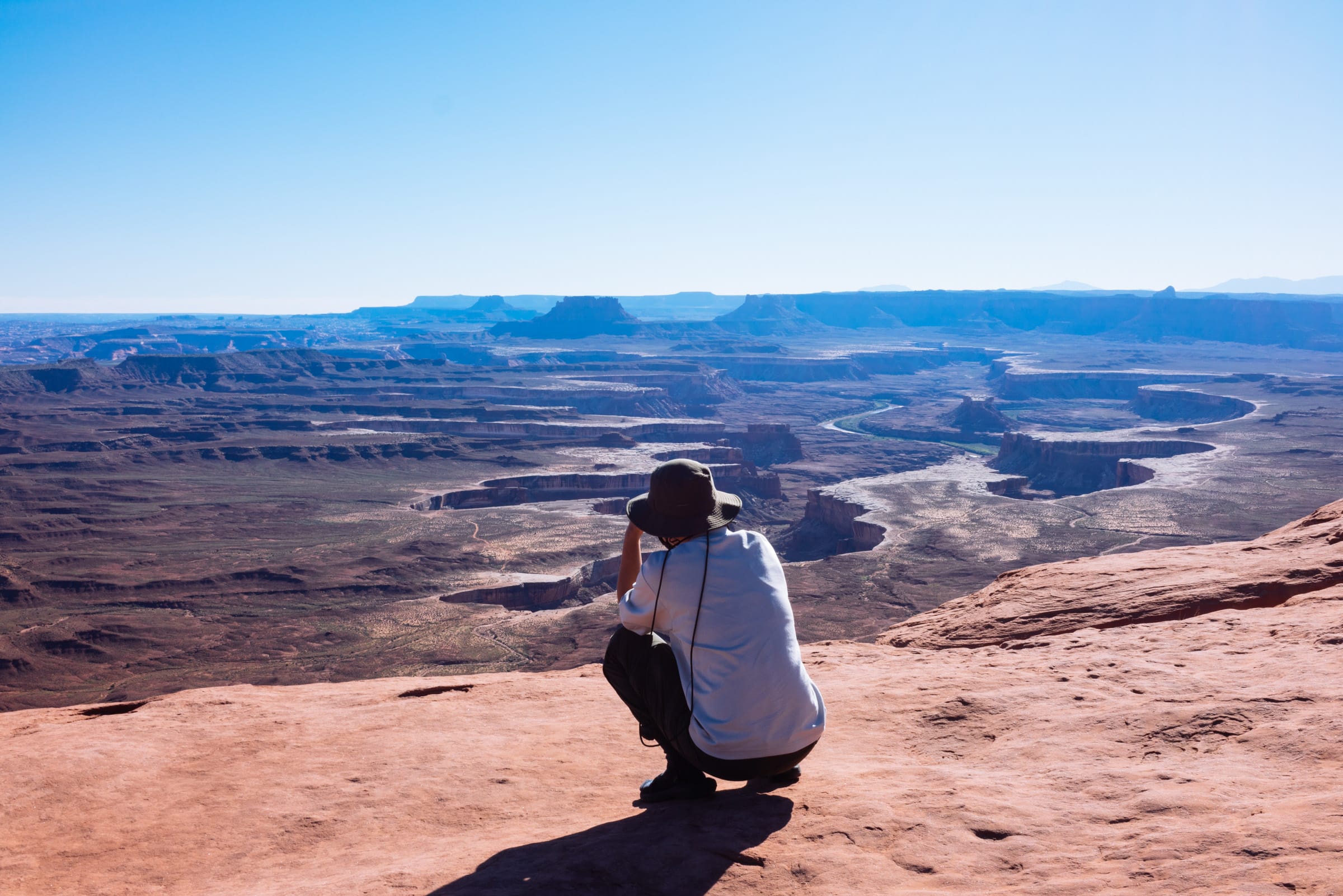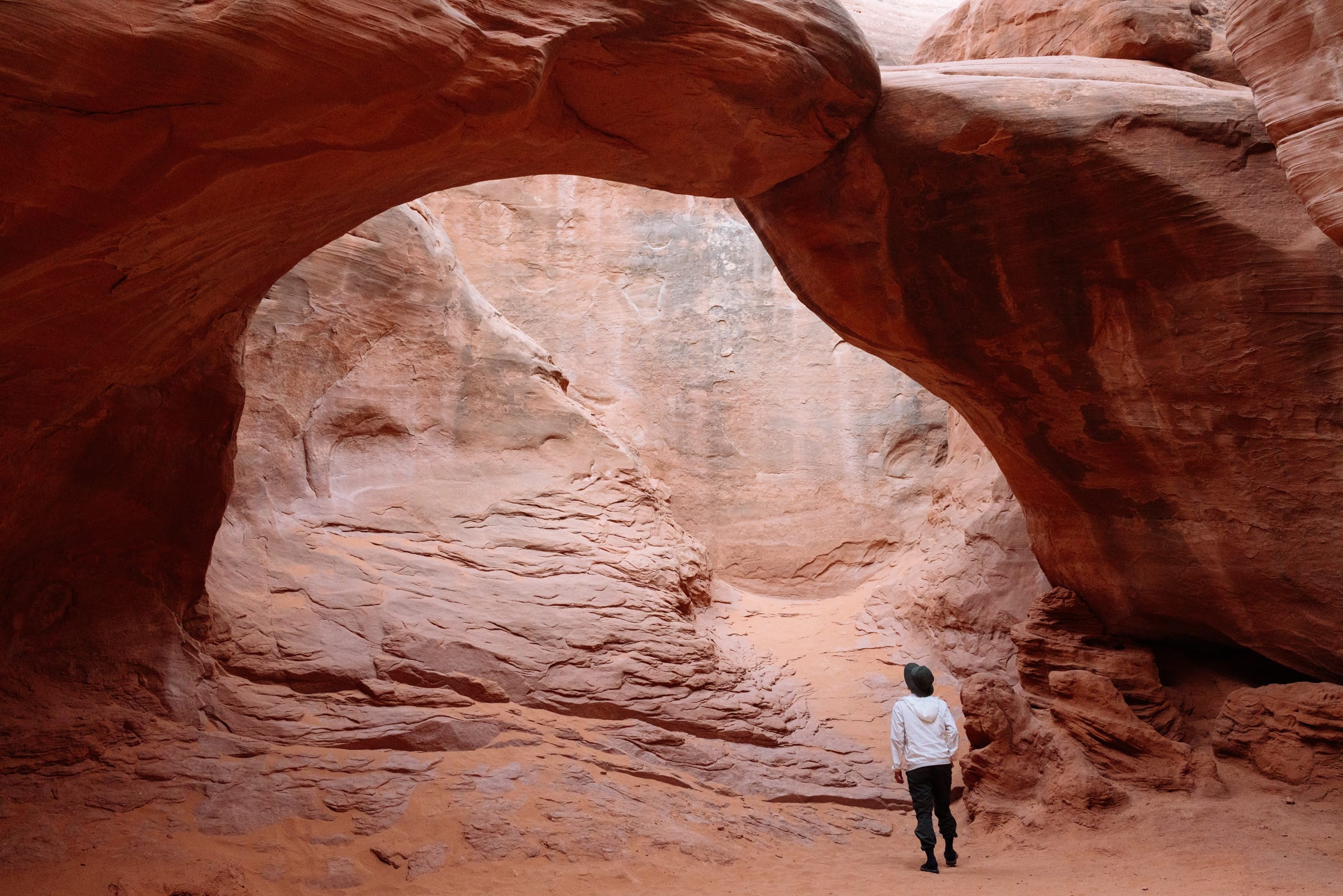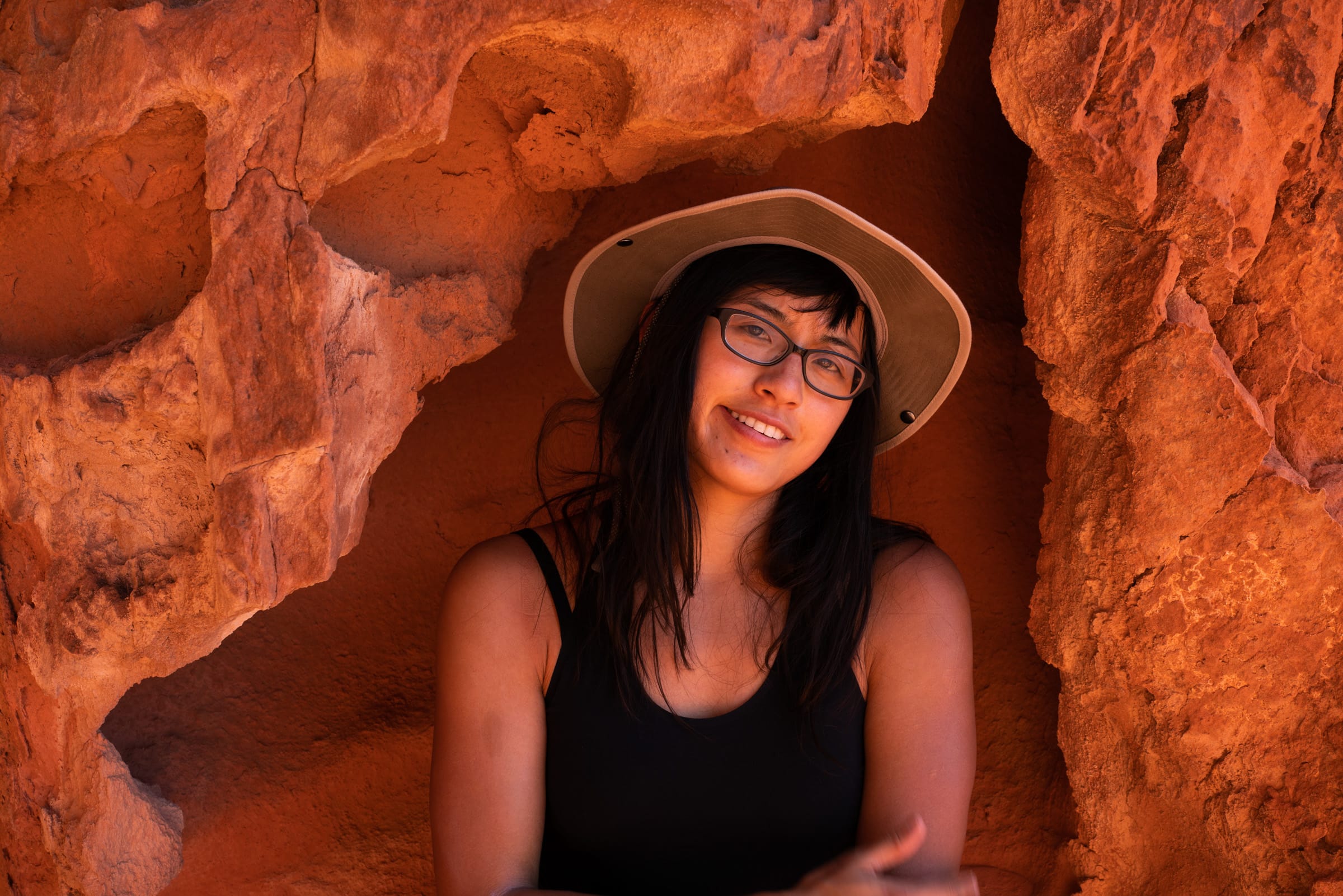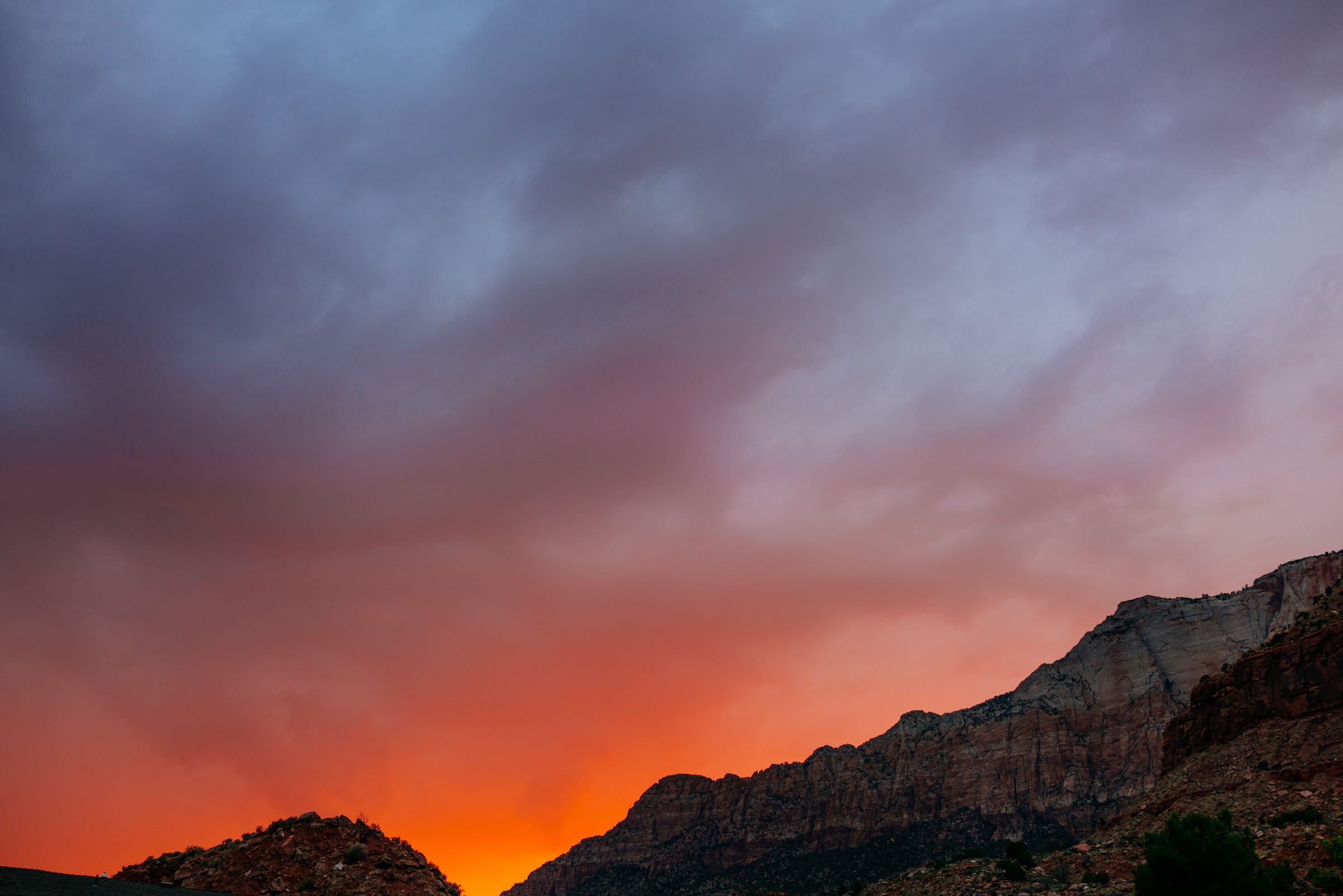Things practiced: not looking at screens, suicide postponed, photography I guess
The Colorado Plateau has somehow, through a series of coincidences, survived as a coherent block since the Precambrian; nowhere else on Earth can we see such a history of the last two billion years.
One couldn’t dream a place like this. The sky is open all the way; I only want to walk a little longer.
Here’s a world far larger than our own, that stretches into the ancient past and continues into a future beyond human limits; here the landscape is infinite, its bounds beyond the horizon of human knowledge, its possibilities endless. Weird as hell.
The desert has no center. It’s a riddle with no answer, a distant and uninhabitable planet. The desert waits outside, waits for us all: desolate and still and strange, grotesque in its shapes and colors and forms: canyon, butte, mesa, reef, fin, slot, dome, escarpment, pinnacle, maze, sand dune.
The desert says nothing, it lies there like the bare skeleton of being, spare, sparse, austere, utterly useless, clean, pure, simple, untouchable by the human mind.
The land is sand or sandstone, naked, monolithic, austere, unadorned, like the moon, or Mars.
Here are canyons a thousand feet deep where you could fall for days on end, hoodoos pinnacled red and pink and beige, white and pink ice cream swirls of slickrock, labial outlines giving way to jumbles of rock, light surreal blurring the bounds of cloud and sky. Clean air to breathe; stillness, solitude, and space; a weight of time enough to let thought and feeling roam from here to the end of the world; finding something intimate in the lonely, primordial, remote, unfamiliar world. We’re let to roam; we’re let to breathe; suspended in this space between sunrise and sunset.
It’s an inverse wilderness — instead of mountains, the land recedes; instead of scaling peaks, we descend into the Earth. The sky empties us so that our minds matches the landscape, our thoughts sparse and simple. Shade and water are key; nothing else matters; consciousness is reduced to its essence. Rocks spreading glorious shade; the whole sky ours to write on; the vanishing point of the sun extinguishing time forever. We are alive here right now; all else is irrelevant; we are pleased as long as we have something to eat, our bodies, light to see by; our vision, touch, hearing, taste, smell are sharpened and heightened; I can’t sleep for being alive. The human heart has the capacity still to remember and say, forever.
We learn how to be alone and at the edge of aloneness how to be found by the world. We’re left with a distilled essence of self; we dare a new unknown to find us here.
Each stone and grain of sand exists in and for itself with a clarity untarnished by any suspicion of a different dimension. Only the sunlight holds things together, abundant, wasteful. The desert reveals itself nakedly, cruelly, with no meaning but its own existence. Life comes to a standstill, and we wait on the shore of time, free, temporarily, from the requirements of motion and progress, hope and despair. The clocks have gorged themselves on our time.
The world is so alive, the strangeness and wonder of existence underlined; life not crowded upon life as in other places but scattered in spareness and simplicity, with space for each so that each living organism stands out bold and brave and vivid against the sand and rock. The moon hangs over the canyon, a tiny radiance in a dark place. Imagine you wake up with a second chance.
We expect wilderness to be spectacular — that is, a spectacle outside ourselves, a scenic wonderland, scenery instead of nature. The highest mountain, the largest geyser, the biggest tree, the deepest canyon.
In that first moment in which we wake there is a slanting light, a small opening into the day, which closes the moment we begin our plans. What we can plan is too small for us to live.
It’s absence that creates the feeling of wildness — the absence of roads, human intrusions, our preconception of what is sublime. Maybe we fear our capacity to feel, and so annihilate physically and symbolically all that might make us tender, silence the music and reduce beauty to a collection of objects we can curate and control. We homogenize the outdoors to homogenize our innards, erase our inner ugliness, destroy our selves.
Maybe wilderness lives only in places without maps. We draw maps so that we don’t lose our way, but it’s only because the way was lost to us already that we did. The world cannot be lost, and the maps we’ve drawn ourselves can’t save us, can’t find the way again for us. We think of maps as pictures of reality, but they twist our minds away from what’s real, and create the situation they describe. Instead of helping us find our way they proscribe the way we can think of ourselves.
People paying more attention to what other people tell them than to their own perception is the beginning of civilization. Perhaps in our homogenization of landscape, we’ve eliminated beauty from our lives. We stand at the edge of the fathomless crowd.
If we can learn to love space as deeply as we’re obsessed with time now, we might discover a new way to live. The light insists on itself in the world; we want to be loved shamelessly, by the shameless.
Sometimes we need to push ourselves into existence; to reach into areas where we might potentially fail. Sometimes it takes a sky to find a first slice of freedom in your own heart, someone has written something new in the ashes of your life. You’re not leaving, even as the light fades quickly. You’re arriving.
Why not wake at dawn, after all is gone, and go on? Don’t stop; breathe in; breathe out; the world was made to be free in; the rocks framing, only for now, our horizon. In this place we leave everything we know behind.
We’re still here, breathing and constellated, small and infinite and quiet. The sky is dimming so fast it seems alive and we have our whole lives ahead of us.
